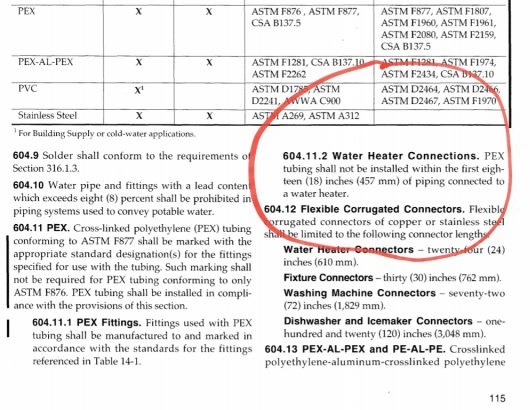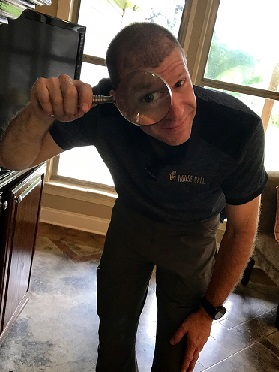Adversity. It’s not a word that we often use in our everyday conversations. And yet, adversity, and how we deal with it, often plays an over-sized role in determining the level of success that we attain in our business (and personal) lives.

Adversity can be defined as a state of adverse conditions, where someone or something is actively opposing or working against us, in a manner that is contrary to our well-being. Adversity is thought of as having an unfavorable, often hostile effect on us and our lives. Clearly, adversity is something that does not better our conditions or make our lives more enjoyable.
So, why even discuss adversity? If it’s such a bad thing, why are we wasting time thinking about it? Wouldn’t it be much more productive for us to talk about education, marketing or how to better our relationships? While those things are certainly important, and worth discussion at length, if we are not equipped to properly handle the adversity that we will encounter in our (business) lives, those other things won’t really matter. No amount of education, marketing or advice from relationship gurus will be able to undo the damage our reputation will sustain from mishandled adversity.
Joseph Conrad
As a general rule, a reputation is built on manner as much as on achievement.
Today, I spent the better part of 5 hours in a meeting of our state home inspection board. A good portion of that meeting was dedicated to hearing a complaint against a licensed home inspector. The complaint was filed by a real estate broker, who claimed that the inspector was in violation of one of the state’s ethics laws regarding the inspector’s interaction with the public. The broker alleged that the inspector failed to “avoid activities that may… reduce public confidence in the (home inspection) profession.”
While we won’t get too far into the specifics of the incident, the main point of the broker’s argument was that, during an inspection, the home inspector acted in a condescending and belligerent manner toward her. The broker was there representing the seller’s side of the transaction, as well as to provide access to the units that were being inspected. During the process of the inspection, the seller’s representative, as they often do, asked some questions regarding the inspector’s findings and his inspection process.
Anyone who has been performing inspections for any length of time can attest that they are constantly fielding questions about the home inspection and their process from all sides of the transaction.
What does that mean?
Why are you doing that?
Is that important?
How much longer is this going to take?
There is no hard and fast rule on how we should deal with these interruptions to our process, and each inspector has their own method of dealing with inquiries during an inspection. Some inspectors will gladly stop their routine to answer questions, while other will ask for everyone to hold their questions until they have finished with the process of inspecting the property. We must always remember that each person and situation is unique, and therefore we must tailor our responses to each individual circumstance.
Regardless of how we deal with interruptions to our inspections, we must always remember that our responses are not presented in a vacuum. Everything we say, as well as how we say it, has consequences beyond that point in time. Our responses effect not only those particular people on that specific inspection but can have long-lasting (and often unintended) consequences.
People talk. Agents talk. Opinions, good and bad, are often broadcast for all the world to see on social media.

Your words have consequences. Your actions have an effect. Certainly, they affect you directly, but they also affect all of us: the entire home inspection industry. The actions that you take affect all of us. The decision of this one inspector to become combative towards the seller’s representatives instead of properly handling an easily diffusible situation serves to erode the confidence of that broker (and her entire office) in the professionalism of the home inspection industry as a whole.
Conflict resolution, unfortunately, is not part of the required curriculum for new home inspectors. Most of us learn everything we know about conflict resolution from the real-life experiences that we go through while we’re growing up. Sadly, the lack of formal education in this important area of our lives often leaves many of us with a lack of abilities when it comes to this important coping skill. All too often, people mistakenly assume that anyone asking them a question is attempting to discredit them and disparage their abilities. While some individuals are simply wired to turn every personal interaction into an affront, it seems that this occurrence is even more prevalent in individuals that have yet to attain a certain level of confidence in their knowledge of the subject matter in question. Experienced home inspectors do not need to become combative when someone questions their findings, as they have the knowledge and experience to know the facts of the situation and can back up their findings with irrefutable facts.
I recently had an instance where I called out a problem with a water heater installation in a new home. The contractor had installed PEX water pipe right up to the heater, without providing the required 18” of clearance between the PEX piping and the water heater. The buyer received a text from the builder, stating that his contractor assured him that the unit was installed according to code. The builder went on to tell her that the local code officials had signed off on all his work, which would’ve never happened if anything was installed improperly. As a bonus, he threw in a few choice words about home inspectors and their lack of knowledge when it came to construction and following codes. My buyer forwarded his text to me, asking for some guidance. While I could have easily taken offense with this contractor’s words, and started a “Twitter War,” which seems all too common in the current state of public discourse, I chose the high road, allowing the facts of the situation to make my argument for me.
As I knew that the facts were on my side, I decided to reply with a few text messages that would be indisputable. As part of the plumber’s argument was that the 18” clearance requirement was not part of the older version of the code that was being enforced in this particular jurisdiction, I researched back a few versions of the UPC (which all happened to have the same clearance requirements.) I took a screen shot of the page from the code book, circling the relevant passage to make it as easy as possible for him to understand. I threw in a bit about my experience, in order to squash any arguments about my level of competency. And I even sent a screen shot of an inexpensive water heater connector, to reinforce how little it would’ve cost to simply do the job right the first time (and give my client a bit more bargaining power with this contractor.)

While I could’ve gotten into a pissing match with this contractor, debating his qualifications and his choice of subcontractors, the more prudent path was to simply state the facts in as clear and concise a manner as possible. This served to eliminate any argument that he may have tried to present and got my client’s water heater fixed as quickly as possible.
As a result of our interaction, I may not have made a friend out of this contractor, however, my client and her agent were quite pleased with the simple resolution to the issue, and the subsequent lack of drama in getting the problem repaired. And as a bonus, I’m certain that this particular contractor will do a bit more fact-checking before he attempts to blow-off the findings of the next home inspector.
Ours is a job that often puts us in the middle of a debate between two parties with (seemingly) opposing interests. One the one hand, there is the selling party, which is trying to maximize their profit level with as little additional work as possible. On the other side sits the buying party (who is typically our client). The buyers are trying to get the lowest price possible on the best quality product available. Sadly, these two parties are typically at odds, and (right or wrong) often look to us for guidance through this minefield. Unless there are two highly experienced agents involved in this transaction, the home inspector can easily get sucked into this debate. (BTW, that’s another ringing endorsement for only working with the best quality agents available to your business.)

We are often faced with difficult circumstances in our jobs as professional home inspectors. Maintaining a professional demeanor when dealing with adversity is essential in developing a successful business. Don’t get sucked into the arguments; attempt to remain above the fray. Learn as much as you can about conflict resolution and put those lessons to good use. Your abilities will not only increase your standing in the real estate community but will help to limit the frequency and intensity of your problems. And it might even help boost the standing of the home inspection industry as a whole.
And for that, we thank you!
I welcome all feedback (both positive and negative) on this post. Please take a moment to leave a comment below. Thank you!
Please Share with Friends!
I thoroughly enjoy creating these posts for you, the reader. Please take a moment to comment, letting me know what you think about the topic, and passing along any of your knowledge to our community. Please feel free to get in touch with me, letting me know if you have any specific topics that you would like to see covered on the site. And please feel free to share this content with your friends. The more people that we can help in their careers, the better!
Thanks, Joe

